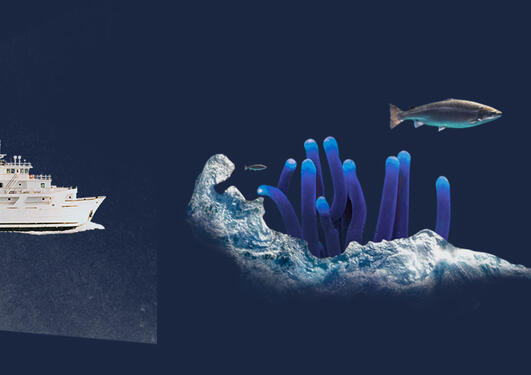Research possibilities for the SEAS postdoctoral research fellow in optical ocean technology
The information on this page is a supplement to the complete advertisement of the position in the recruitment-portal Jobbnorge. The full advertisement of this position in Jobbnorge will be available after august 1, and linked from this webpage. Call deadline is October 31, 2021.
Hovedinnhold
Position | SEAS postdoctoral research fellow at Department of Physics and Technology |
Research area | Optical ocean technology |
Supervisor | Associate Professor Camilla Sætre |
Mobility | For an incoming candidate |
Unit of employment | Department of Physics and Technology at University of Bergen |
Group affiliation(s) | SFI Smart Ocean/Research group on measurement science |
Thematic area and supervisor
This position is connected to optical ocean technology with emphasis on development and use of instrumentation for monitoring of light scattering and absorption by marine particles, where the observations will be used to improve underwater optical communication in different coastal and fjord waters, including darkened waters due to increased land sediment runoff. The position is open to an incoming candidate, see mobility rules. The successful candidate will be employed at the Center of Research based innovation SFI Smart Ocean/Department of Physics and Technology and included in the research group on measurement science and work closely with colleagues in the optics research group. Information about the supervisor, research group and research possibilities for the fellow is available below. For further details about the research possibilities please contact Associate Professor Camilla Sætre.
Research possibilities and resources
The supervisor Camilla Sætre has experience in measurement science and measurement uncertainty evaluation. In SFI Smart Ocean, Sætre leads the work package “Smart sensors and Measurement strategies” and leads the Technology advisory committee.
Ocean technology at the Department of Physics and Technology, UiB, includes research and education within marine optics and measurement science. The research groups collaborate closely on research of optical properties of the water, and related measurement and instrumentation systems.
The research on marine optics ranges from in situ measurements of inherent optical properties, to radiative transfer modelling, and satellite remote sensing of the ocean. A current project led by the group, is investigating two separate annual events – both turning the fjord water green in the spring and summer. One is algae blooms; the other is glacier meltwater. Careful optical measurements in situ will be used to feed models with relevant data for improving remote sensing.
Measurements and modelling of inherent optical properties and radiative transfer are also highly relevant for underwater optical communication and imaging. Within measurement science, the research focus is also related to the development and improvement of sensor and instrumentation technology to provide experimental measurement data of highest possible quality and/or accessibility.
The research groups have close collaboration with the Department of Biology, especially related to the optical properties of water due to algae.
UiB, Department of Physics and Technology, is host for the Centre for research-based innovation, SFI Smart Ocean. This centre is a leading research- and innovation cluster within marine instrumentation and operation. The mission for the Centre is to develop a novel sensor- and communication system to secure sustainable ocean industry operation and fact-based ocean management. For longer distances and turbid waters, acoustic underwater communication is required. However, for shorter distances and clear water, optical underwater communication yields significantly higher band width. The research focus is on development of a completely new method to gain information from the ocean, highly relevant for sustainable marine management. There are several possibilities for close cooperation with research-, industry- and public partners in the innovation centre, 18 partners in total. The Centre operates in the period 2020 (December) to 2028.
Available research infrastructure includes marine optical laboratories equipped with pulsed lasers, broad-band lamps, spectrometers, and other general optical equipment, as well as an extensive amount optical instruments to be used in the ocean, such as LISST-VSF, LISST-200x, ACS, Ramses radiometers, CTD, water collector and filtration units. For SFI Smart Ocean, there are available different test and pilot ocean/coastal demonstrators where underwater communication systems will be tested.
See the full advertisement in Jobbnorge
The full advertisement in Jobbnorge will be available after august 1, 2021. Call deadline is October 31, 2021.
